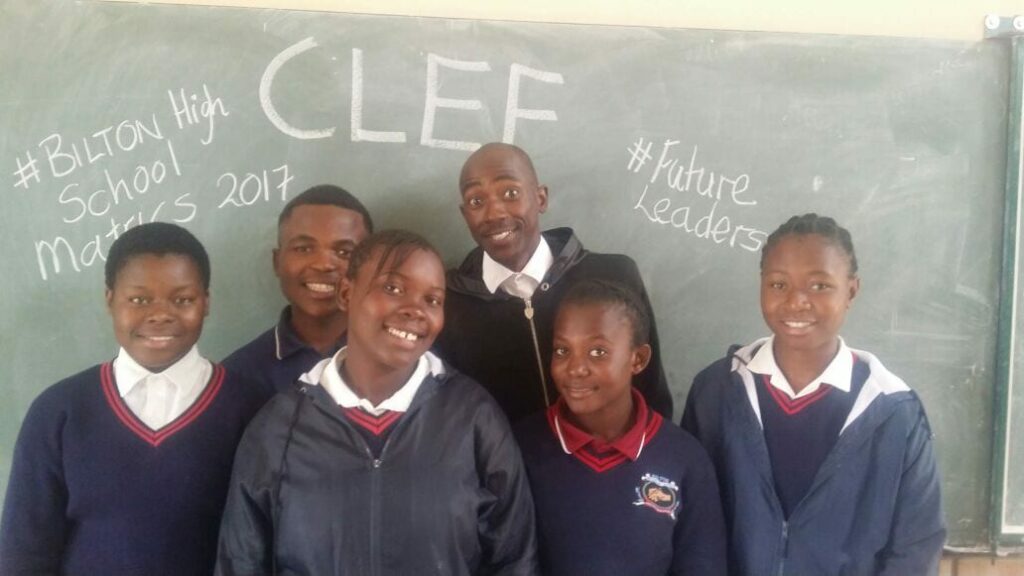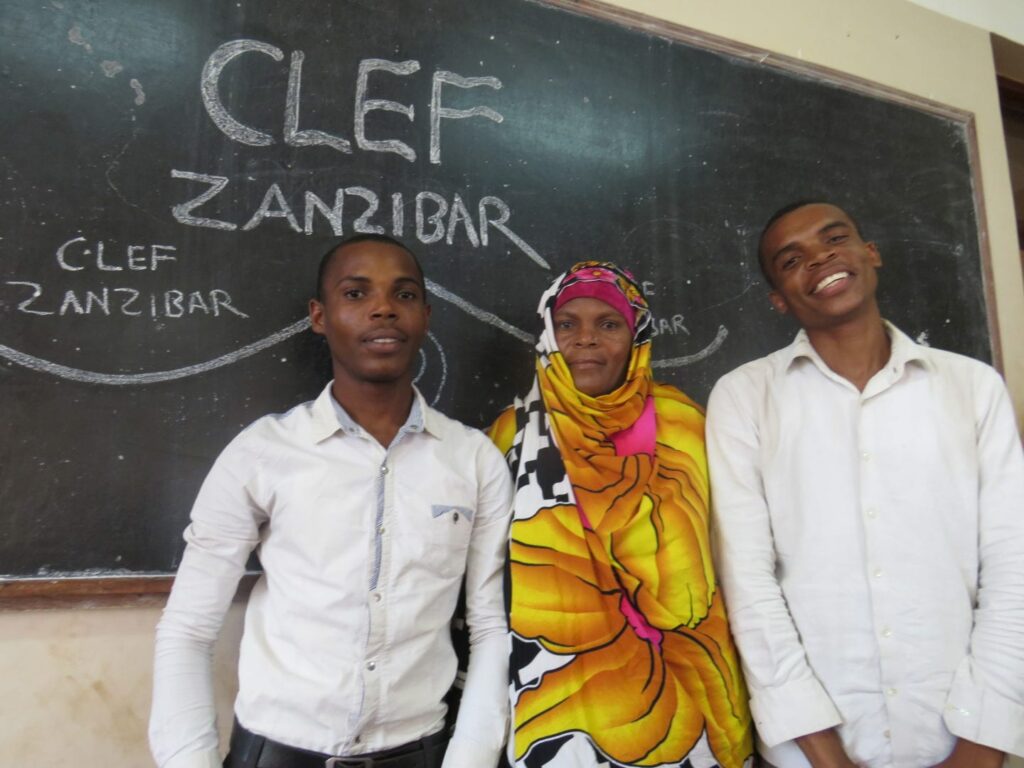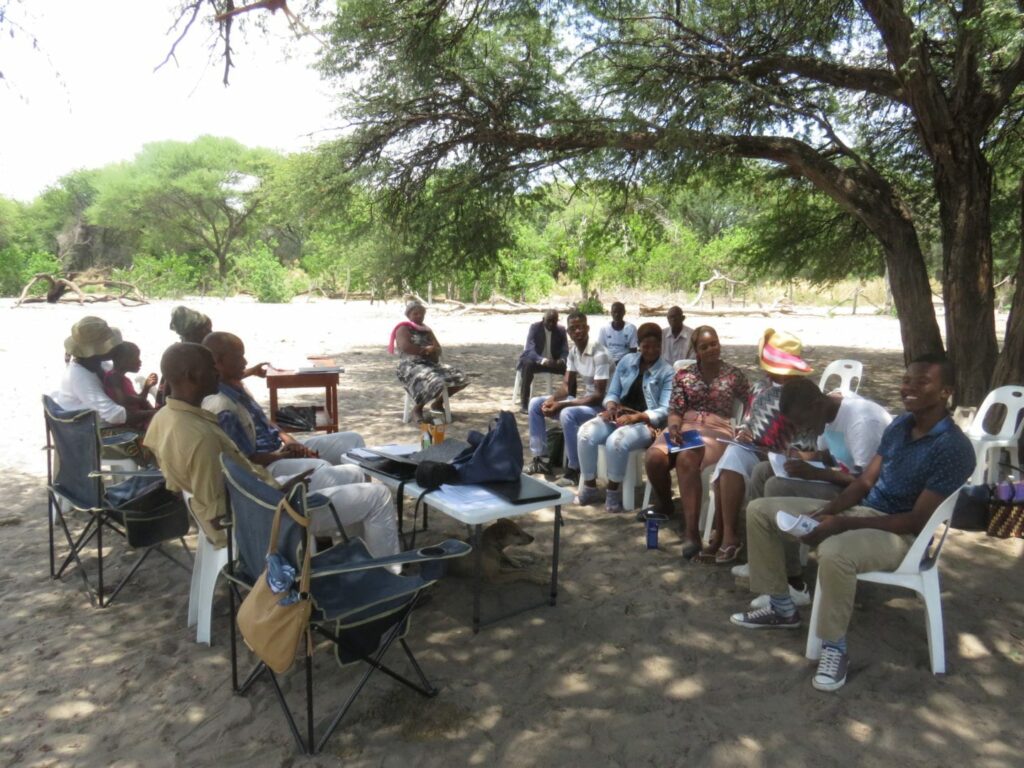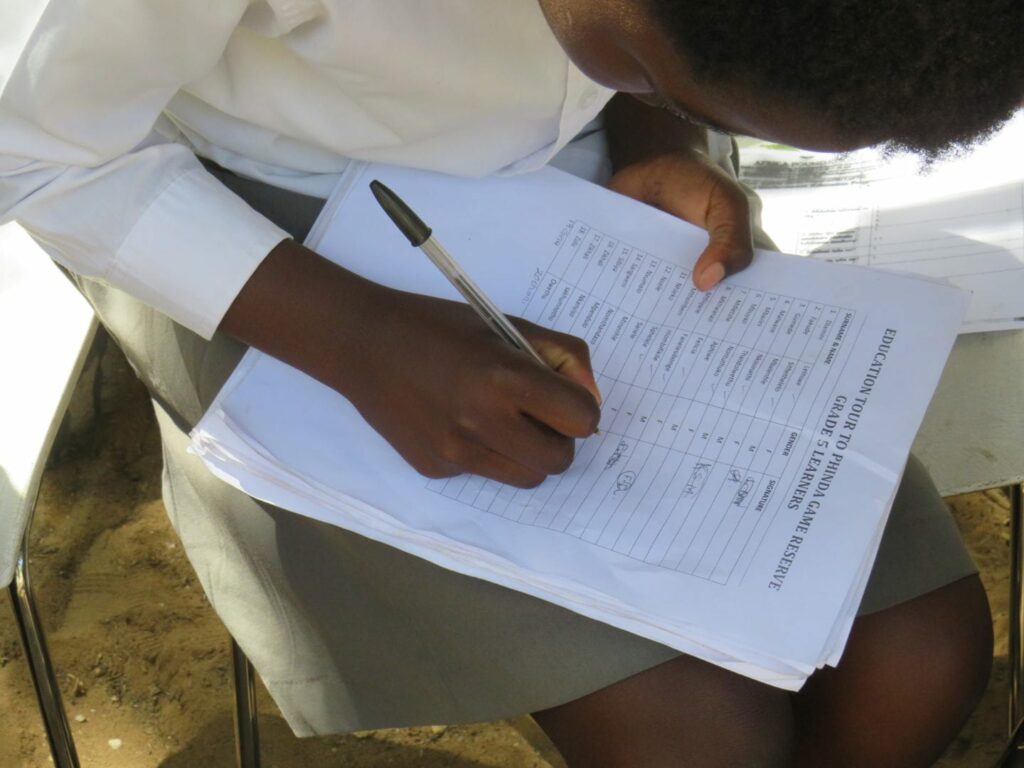The success of rural development programmes is largely dependent upon leadership from dynamic local champions. The experience and wisdom of these individuals is one of the greatest assets of these communities.
With this in mind, Africa Foundation began the Community Leaders Education Fund (CLEF) bursary programme in 1996. The CLEF mission is to assist young people who have displayed leadership potential to acquire education and skills that would not otherwise be available to them. We have identified “leadership development through education” as a critical component to enabling communities to realise their dreams of development.

Goals and Objectives
The overarching goal of CLEF is to empower communities by building leadership and enabling individuals to realise their dreams. The specific aims are to provide access to tertiary education, reduce unemployment levels and increase household incomes.
An important component of the CLEF Programme is the Buyisela Programme. Each bursary recipient is required to conduct a project in their communities during one of their Semester breaks, in order to share their skills, thus ensuring that the CLEF bursaries benefit both the individual and the community. The Buyisela Programme encourages bursary recipients to use their newly acquired skills to give back to their communities. Buyisela reports must be submitted on completion of the project, with typical examples including helping in local clinics, offering career guidance at high schools, community clean-up campaigns or assisting with community agricultural projects.
The main objective of the CLEF Programme is to provide young leaders with the skills to increase their opportunities for employment by pursuing tertiary education. We focus on the tertiary level, as experience has shown that bursaries for primary and secondary students are not an issue or priority for community members. School fees for primary and secondary students in many rural communities are completely subsidised by the government so that education is accessible to even the most disadvantaged families. The need for tertiary bursaries, however, is dire, as less than 1% of high school matriculants are able to afford tertiary education.
Geographical Area
The CLEF Programme offers bursaries to students living in some of the rural communities that surround andBeyond lodges in South Africa, Kenya, Tanzania, Botswana and Namibia.

Methodology
The success of the CLEF Programme resides in the strength of the programme’s methodology. The following procedures are closely followed:
- Students are not restricted to a particular course of study or a particular institution.
- Students return to their communities once a year during vacation time to perform invaluable community service activities (known as the Buyisela Programme).
- CLEF provides partial bursaries – this means students are required to cover the balance of their funding through government financial aid or additional bursary schemes, thereby encouraging them to take ownership of their financial responsibilities as well as committing to their studies.
- Due to the significant gap between rural education and urban tertiary education, Africa Foundation provides ongoing mentorship and support to all CLEF students throughout the year. This assistance ranges from advice in securing further financial aid to maintaining contact after they have graduated so as to keep track of their employment progress.

Application process
The CLEF Bursary Programme activities start with circulation applications in May each year. Lodge staff and Africa Foundation Development Officers circulate applications through local high schools and tribal structures.
Africa Foundation staff screen the applications and select a limited number of candidates for interviews. An interview panel meets with the short-listed candidates prior to the start of the academic year where students are selected for the programme. The interview panel consists of Africa Foundation staff, local lodge staff, local tribal authorities, and where possible previous CLEF students. On an annual basis we receive well over 300 applications; however, limited funding restricts the number of bursaries we can award.
Unlike many bursary schemes, CLEF students are not compelled to work for Africa Foundation after they complete their studies. They are therefore free to enter the job market directly, in their chosen vocation.

Mentoring
Throughout the year Africa Foundation staff remain in close contact with students to monitor academic progress and assist students in addressing problems that they might encounter. As these students are from rural areas with very little external exposure, this support through active communication with the bursary recipients and their academic institutions forms an integral part of the programme’s success.
Bursaries are approved on an annual basis. While we generally provide continued support for bursary recipients throughout their multiple years of study, we have also learned that making the Bursary subject to annual re-application keeps the students focused on the need to keep up their academic performance each year. This also affords us the opportunity to re-evaluate the financial needs of each student, so that we can allocate available funds most efficiently. Graduates have reported that their annual CLEF interview was excellent practice for when they began to apply for jobs. They felt more able to prepare for an interview having been through the process repeatedly.

CLEF programme manager, Nonhlanhla describes the programme as a driving force to motivate high school students in communities where there are few options for young people;
“This is what you find in all our communities, CLEF is the one thing that gets them up every morning – the motivation to go to school. It’s their way out. – I know my home situation is dire, but if I do my part, if I work hard, there is this thing called CLEF that will take me to the other side.”
To date CLEF has taken 532 young people to the other side, and continues to do so, with the immense support of the Africa Foundation donor base, who know, through this programme – their money changes lives.